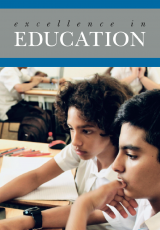AKA Dhaka organises KIX orientation programme
The Centre for the Study of Learning and Performance of Concordia University, in partnership with the Aga Khan Academies, Wilfred Laurier University and World Vision Canada, leads the KIX project. Given that the project focuses on literacy, two tools within the Learning Toolkit+ will be used: ABRACADABRA (A Balanced Reading Approach for Children Always Designed to Achieve Best Results for All) and READS (Repository of Ebooks And Digital Stories). The former is an interactive instructional software to teach foundational literacy skills, while the latter provides an organised catalogue of free digital stories. The project’s overarching objective is to improve English literacy skills of early graders in Bangladesh, Rwanda and Kenya. AKA Dhaka is carrying out this project in 13 government primary schools across eight divisions in Bangladesh. It involves 26 teachers and 1000+ students in eight districts under eight divisions.
The programme started with a welcome address by the Head of Academy Bill O’Hearn, after all the participants introduced themselves at the Academy’s Lecture Hall. Mr Bill spoke about the mission and vision of the Aga Khan Academies and provided a brief insight into the activities of the Professional Development Centre (PDC) and Outreach department of the Academy in Dhaka. He also shared his experience serving as the head of Academy in the AKA Mombasa and his exposure to the KIX project in Kenya.Head of PDC and Outreach at the Academy in Dhaka Md Musle Uddin Bhuiya led the event as he started by sharing a presentation on the goals and objectives of the project. Mr Musle illustrated the project’s major activities: a brief introduction to the software, professional development resources for teachers and other teaching-learning materials. Mr Musle further emphasised the impact this project can create while achieving competency in English literacy without incurring any cost for its recipients.
“Through this project, we propose to challenge the cost of literacy and improve the minimum proficiency level in English of early graders by implementing interactive software tools,” Mr Musle said. “These evidence-based and evidence-proven tools and their digital support materials are available without charge. To scale effectively, professional development materials will also be available in various modalities (face-to-face, distance, and blended learning).”DPEO Mr M A Aziz thanked the Academy for bringing this initiative to government schools. Mr Aziz further expressed his hope of improving teaching and learning competencies by implementing such technologies in the classrooms.
“When teachers will use this software, they will be more equipped to track the progress of their students and be able to help to support their learning needs accordingly,” Mr Aziz said. “It redirects the teacher to fine-tune their teaching techniques as well.”
CEO of AKES, Bangladesh Ms Salimah Kassam concluded the first session by appreciating the government officials and the participants for their enthusiasm and active engagement on the project. Ms Salimah further accentuated the Academy’s commitment to supporting the local community to create ethical and pluralistic future leaders of Bangladesh.
The guests received a tour of the Academy after the conclusion of the first session. Followed by lunch, Mr Musle initiated the second session of the programme, where he demonstrated both ABRACADABRA and READS in detail to the participants. The day ended after the interactive session, where every participant unveiled the sheer spirit to implement the project in their respective educational institutions.




